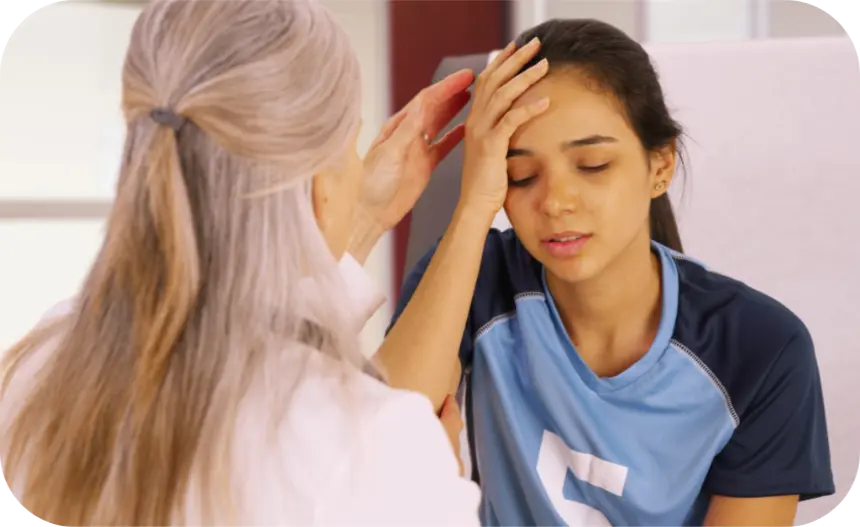
Sep 20, 2019 • 3 min read
10 Concussion Facts Sports Parents Should Know
 Every sports parent needs to be aware of concussion protocol and safety. Concussions are serious and should not be taken likely. If your child is playing sports this year–and any sport (not just football)–here are 10 basic concussion facts you should know:
Every sports parent needs to be aware of concussion protocol and safety. Concussions are serious and should not be taken likely. If your child is playing sports this year–and any sport (not just football)–here are 10 basic concussion facts you should know:
Highest risk athletes: According to data on brainline.com, high school athletes are one of the most at-risk groups for concussions. Research shows an estimated 140,000 high school athletes in the U.S. suffer a concussion each year.
Definition of concussion: A brain injury that disrupts normal brain function, usually happening when the brain is drastically rocked back and forth or twisted inside the skull because of a blow to the head or even body.
Follow recovery protocol: Most children who get a concussion completely recover with no problems. But it’s very important that an athlete who gets a concussion is diagnosed and treated properly and that they stay away from physical and mental strain for however long the doctor recommends.
What about complications? Some athletes develop more serious complications and it may take longer for them to recover, especially if this is after a first concussion and they returned to play before they were totally healed.
Concussion Symptoms: These can vary from child to child, and may include:
- headaches
- confusion
- problem sleeping
- dizziness
- nausea/vomiting
- disorientation
- imbalance
- hearing/visual problems
- fatigue
- trouble sleeping
- trouble remembering/holding attention
- pass out, even if briefly
- slurred speech
- light sensitivity
- behavior changes
- heightened emotions/irritability
- double/blurry vision
- numbness
Concussions can happen without a hit to the head. Athletes can get concussions even when not hit in the head. For example, whiplash can cause a concussion, from the force of the head snapping back and forth. Any movement that bounces the brain around in the head can result in concussion.
What if my child seems okay? Let’s say your child collided with an opponent and got up looking dazed. Coach pulled her out, but a few minutes later she said she felt fine and only had a slight headache. Should she go back in if she seems okay?
The bottom line is: when in doubt, sit them out. Continuing to play after a concussion can worsen symptoms and increase the risk for more injury. Don’t leave it up to parents and coaches to give a definite diagnosis; let a doctor make the call.
The most important step when an athlete gets a concussion is identifying it. According to the Concussion Legacy Foundation, “Research shows that we fail to identify the majority of concussions, and failing to identify injuries increases the risk of negative health outcomes including additional injury, post-concussion syndrome, and second impact syndrome. Proper remove-from-play training and policies, which include objective sideline testing, can help keep athletes safer.”
Rest up: Sleep is the best treatment for a concussion, claims the Concussion Legacy Foundation. It’s okay to let your athlete sleep without interruption the night of the injury after evaluation by a medical professional.
Can a concussed athlete return to sports? If there are symptoms, absolutely not. It’s rare that a child is told to give up sports after a single injury, but if the athlete’s recovery takes several months, consult with a doctor about the risks of returning to play. If your child has had more than one sports-related concussion, be sure to consult with a specialist.
Janis Meredith is a family coach who wants to help all parents raise champions. You can find out more at rcfamilies.com.
